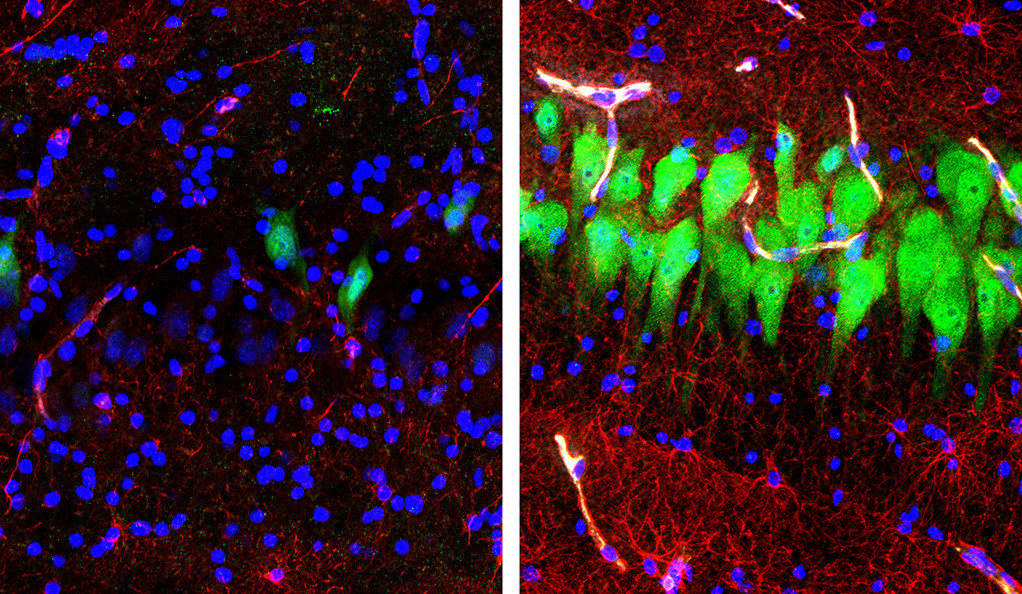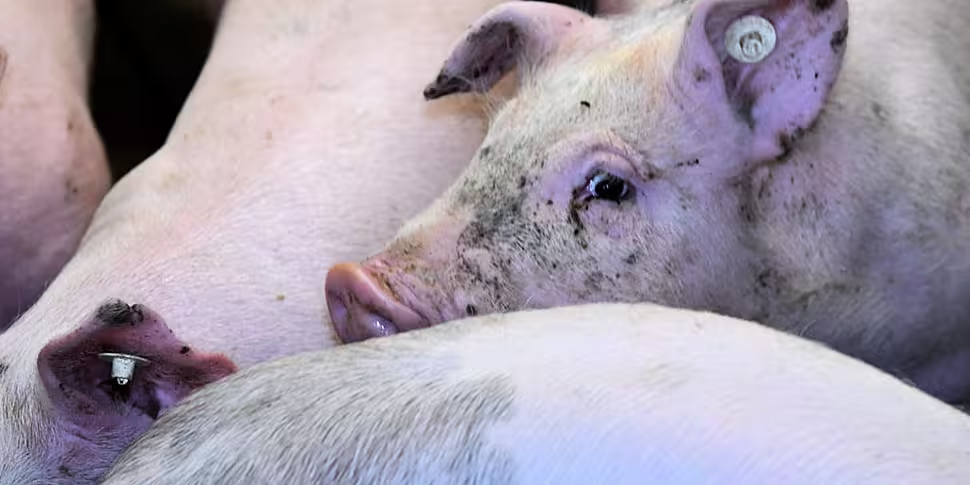Scientists have restored some functions of a pig's brain, four hours after the animal died.
The finding has been hailed as challenging "long-held assumptions" about brain death - with cellular death typically considered "swift and irreversible".
Researchers at Yale University have published their findings in the journal Nature.
During the study, scientists obtained a dead pig from a meatpacking plant.
They used a specially designed chemical solution on the pig's brain.
The researchers found that basic cellular functions resumed, despite it having long been thought that such functions end almost immediately after oxygen and blood flow stop.
According to the study, this indicates an "underappreciated capacity for restoration" of some brain activity after death.
However, they stress that the electrical signals associated with normal brain functions were not observed in the experiment.
 Immunofluorescent stains for neurons (NeuN; green), astrocytes (GFAP; red), and cell nuclei (DAPI, blue) in the hippocampal CA3 region of brains either unperfused for 10 hours after death (left) or subjected to perfusion with the BrainEx technology (right). Image credit: Stefano G. Daniele & Zvonimir Vrselja; Sestan Laboratory; Yale School of Medicine
Immunofluorescent stains for neurons (NeuN; green), astrocytes (GFAP; red), and cell nuclei (DAPI, blue) in the hippocampal CA3 region of brains either unperfused for 10 hours after death (left) or subjected to perfusion with the BrainEx technology (right). Image credit: Stefano G. Daniele & Zvonimir Vrselja; Sestan Laboratory; Yale School of MedicineCo-author Zvonimir Vrselja, associate research scientist in neuroscience at Yale, explained: "At no point did we observe the kind of organized electrical activity associated with perception, awareness, or consciousness.
"Clinically defined, this is not a living brain, but it is a cellularly active brain."
The researchers say the findings will potentially allow them to conduct more complex examinations of the brains of large mammals.
Andrea Beckel-Mitchener, chief of functional neurogenomics at the US National Institute of Mental Health, observed: "This line of research holds hope for advancing understanding and treatment of brain disorders and could lead to a whole new way of studying the postmortem human brain."
Those behind the study stress that it's not yet clear whether a similar approach could be used with a recently deceased human brain.
They also warn that any further study in the area will need to navigate the potential ethical issues.
Co-author Stephen Latham noted that "restoration of consciousness was never a goal of this research".
He added: "The researchers were prepared to intervene with the use of anesthetics and temperature-reduction to stop organised global electrical activity if it were to emerge."









